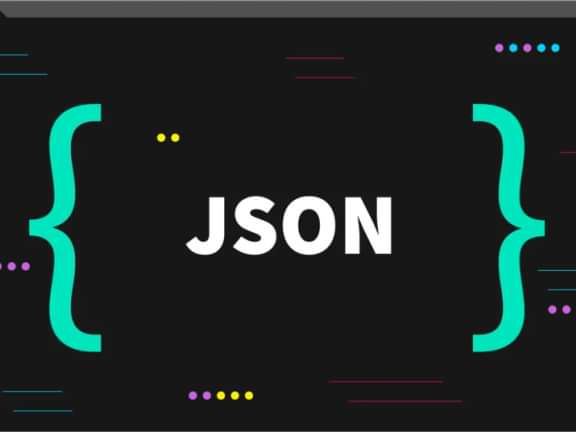What Elements are Foundational for SEO with AI?
The future of SEO isn’t AI vs. human: it’s AI-powered human strategy.
Uncover the core elements that still drive rankings and learn how AI can amplify your results without replacing your instincts.
We all know that the days of keyword stuffing and backlink schemes are long gone, and AI has crashed the optimization party in spectacular fashion. But here's a big question: with all this artificial intelligence at our fingertips, what foundational elements of SEO still matter?
SEO is experiencing a seismic shift as AI tools transform how we research, create, and optimize content. Yet amidst the dazzling capabilities of machine learning algorithms and natural language processing, certain fundamental SEO principles remain steadfast. The magic happens when you know exactly which traditional elements to preserve and which new AI-powered approaches to embrace.
Whether you're a seasoned SEO veteran or just dipping your toes into the digital marketing waters, understanding this delicate balance is crucial. Let's explore the bedrock elements that form the foundation of effective SEO in this AI-enhanced era.
Understanding User Intent: The Core of AI-Powered SEO
AI-powered SEO is all about understanding what users actually want when they type those queries, not just what words they use.These tools are so powerful that they can analyze over 30 billion keywords across 170+ countries.1
AI tools have become remarkably adept at analyzing search patterns to uncover the deeper intentions hiding behind simple keywords. It's like having a mind reader for your audience, except slightly less creepy and significantly more useful.
In contrast, these tools also can offer powerful data insights keyword research by surfacing nuanced, intent-driven opportunities, enabling content creators to meet highly targeted needs and outperform competitors stuck on generic terms.
Content Quality Signals That AI Can Enhance But Not Replace
No, AI isn't going to steal your SEO job. At least not the important parts. While AI tools can help optimize content in remarkable ways, they still can't replicate the human elements that make content truly valuable.
The E-E-A-T factors (Experience, Expertise, Authoritativeness, Trustworthiness) remain fundamentally human qualities. Your AI writing assistant might help you sound smart, but it can't actually make you an expert in cardiac surgery or cryptocurrency trading. Google knows the difference, and so do your readers. In addition, search engines like Google place extra scrutiny in sensitive or “high-stakes” categories like the ones mentioned.2
That said, AI excels at measuring content depth compared to competitors. It can analyze thousands of top-ranking articles and tell you exactly what topics you've missed or where your content lacks sufficient detail. Think of it as having a research assistant who never sleeps and doesn't demand free coffee or afternoon yoga classes.
The trickiest balance is maintaining your authentic brand voice while implementing AI optimization suggestions. The goal is to sound like a more organized, insightful version of yourself, not like everyone else using the ChatGPT to produce mediocre content. So, your quirky industry analogies and dad jokes might be exactly what distinguishes your content from the competition.
Technical SEO Foundations in the Age of AI
Technical SEO might seem like the perfect playground for AI, and in many ways, it is. AI tools can crawl your site faster than any human, identifying critical issues and, more importantly, prioritizing them based on actual impact rather than theoretical importance.
Site architecture has taken on new significance as search engines get smarter. It's not just about making your site navigable for humans anymore; it's about creating a logical structure that AI crawlers can understand. If your site architecture confuses Google's AI, you're in trouble before you've even written a word of content.
Schema markup implementation is another area where AI shines. Instead of manually coding structured data for hundreds of pages, AI tools can analyze your content, recommend appropriate schema types, and even implement and test them for you. It's like having a coding assistant who actually understands what your content is about.
Page speed optimization has evolved beyond simply compressing images (though that's still important). Today's AI-driven ranking factors consider user experience metrics like First Input Delay and Cumulative Layout Shift. AI tools can predict these values before you even publish, helping you fix problems before they affect your rankings.
Strategic Keyword Research: Human Insight Meets AI Precision
Keyword research has been transformed by AI's ability to identify semantic relationships between topics. Instead of treating each keyword as an isolated target, AI helps us understand the interconnected web of concepts that make up a topic. It's less about ranking for a specific term and more about becoming the authority on a subject.
The beauty of AI-powered keyword research is the balance it helps strike between high-volume terms and long-tail opportunities. In fact, AI enhances keyword research by surfacing nuanced, intent-driven opportunities, enabling content creators to meet highly targeted needs and outperform competitors stuck on generic terms.5
So, while humans naturally gravitate toward those big, competitive keywords, AI can identify patterns in search behavior that reveal valuable niche topics your competitors have missed.
Perhaps most valuable is AI's ability to identify emerging trends before they show up in traditional keyword tools. By analyzing search patterns, social media, and news sources in real-time, AI can spot rising topics weeks or months before they become competitive keywords.
However, human creativity remains essential in interpreting AI keyword suggestions. An AI might tell you that a topic is trending, but only a human can recognize why it matters to your specific audience and how to frame it in a way that resonates with them.
Ethical Link Building Strategies Enhanced by AI
Link building remains one of SEO's most challenging aspects, and while AI can't magically generate high-quality backlinks, it can dramatically improve your outreach efficiency and targeting.
Modern AI tools such as ListingBott, LinkHunter, and SEMrush excel at identifying relevant outreach prospects without resorting to spammy tactics. They can analyze content topics, audience demographics, and engagement patterns to find sites where your content would genuinely add value, which is the foundation of ethical link building.
The most effective approach combines AI-powered prospect identification with personalized relationship building. Let the AI find the right targets, but let humans handle the actual conversations. Nobody wants to receive an obviously automated outreach email, no matter how grammatically perfect it might be.
Analytics and Measurement: Turning AI Data into Action
With all this AI-enhanced optimization happening, measuring results becomes both more important and more complex. The key is focusing on metrics that actually matter to your business goals, not just vanity metrics that look impressive in reports.
AI excels at identifying correlations in your data, but determining causation still requires human judgment. Just because your rankings improved after implementing an AI suggestion doesn't necessarily mean that change caused the improvement. The SEO professional's job increasingly involves interpreting what the AI is telling us and making strategic decisions based on incomplete information.
The most valuable skill in this new landscape isn't technical knowledge or writing ability, it's the capacity to translate AI insights into language stakeholders can understand and act upon. AI can tell you what's happening; humans need to explain why it matters.
AI Is the Tool, You’re Still the Strategist
The foundational elements of SEO haven't disappeared with the rise of AI, they've evolved. The most successful SEO strategies now integrate time-tested principles with cutting-edge AI capabilities. Content still needs to deliver genuine value. Technical foundations still matter. Links still vote for authority. The difference? AI now helps us execute these fundamentals with unprecedented efficiency and insight.
Perhaps the most critical foundation of all is maintaining the human element. It’s critical to remember AI tools are remarkable assistants, but they can't replace human creativity, strategic thinking, or ethical judgment. The brands that will dominate search results are those that use AI to amplify their human expertise rather than replace it.
Remember...
As you build your AI-enhanced SEO strategy, technology should serve your goals, not define them. Start with a solid understanding of your audience, create content that genuinely serves their needs, build a technically sound website, and earn attention through value rather than tricks. Then, let AI supercharge those efforts, not substitute for them. That's the true foundation for SEO success in this exciting new era.
Continue reading.
The Element API plugin is a very powerful tool that you can use for quickly exposing your data structures to an external source.
Read moreA brief introduction to consensus mechanisms and why proof of stake is the right move for Ethereum.
Read moreLet's chat about your project
Portland, OR 97215



